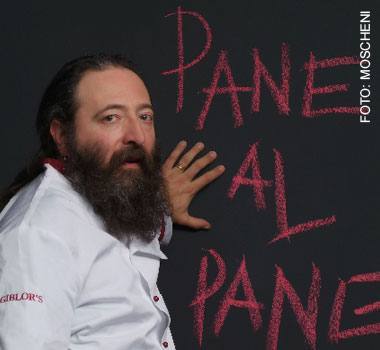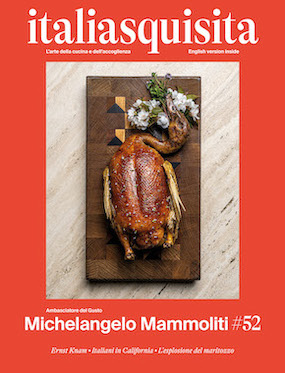Homepage
How to make bread, according to Eugenio Pol

Il racconto di un esperto della “naturale” bread-making, Eugenio Pol
Eugene Pol, a native of Milan, graduated in chemistry, decided in the early 80s, to migrate to a healthier and less frenetic life, and especially, chose to turn a passion into a real job, always played with heart. Thirty years ago, in fact, finds a small inn in a village of the high Valsesia and here begins to test his gifts of cook, the experience continues, alternating phases of stabilization in Milan and in the magical world hidden in the mountains. Until it finally stopped in a village of the idyllic landscape, Varallo, and initiates a climb to a successful restaurant industry for the quality food and the careful selection of raw materials. Its cuisine is closely linked to the territory with the use of local products and, whenever possible, organic, but the bread bought does not satisfy him. So, Pol begins a search job for the bread as it was once (natural fermentation); so he gets in love with this work, this specialization within the vast world of kitchen and began to devote himself completely to this job and continues to this day, in Fobello in the province of Vercelli. His bread is appreciated around the world and by the major Italian chefs Aimo Moroni, Antonino Cannavacciuolo or Massimiliano Alajmo.
We interviewed this - difficult to define for his many qualities - professional baker, old baker, cook farmer. His idea of "bread" is based on attention to three elements that make the dough: flour, water and yeast, and cannot be excluded a fourth, the air. His chemist approach is evident in his knowledge of chemical reactions of the various elements that trigger crossing; so the magic of yeast and its response to the air and moisture present in it, is conducted by a scientific rule. However, it remains wrapped in a fabulous ball, when this "philosopher of bread" (yet another definition that may be assigned) gives to his craft that charm of attention linked to the primary ingredients. So we said: flour in the first place! The flour for bread is made from old grains, grown from a few, the lower yield and, although prices are high, showing the advantage of having more flavor to the increased presence of mineral salts, and these - stone milled in order to keep sprouts and bran - come from farmers in the upper Langa, from farms in Tuscany and Sicily, with biological management with a focus on recovery of old grains. Water and air: water must not be chlorinated; the other should preferably be free of fine particles. Finally, the yeast: is essential to use the yeast (no beer yeast that covers every flavor), without fixed rules, because everything changes with the seasons and humidity of the air. Just part of the fermentation, from all types of wheat grow different flavors, depending on the place of origin, in which the grain develops several endemic bacteria (hence, different flavors and fragrances), all while preserving and respecting biodiversity.
Despite this profession absorbs almost completely the day (and life) of our interviewee Eugenio Pol loves the rhythms that mark his life, thanks to the ideal environment in which it entered: the mountains, with a little garden in the courtyard, the random sighting of wildlife and a relaxing walk along with his faithful dogs. At the end of pleasant conversation, almost makes you leave town for a trip that of Fobello!
Published on: 24-07-2010




